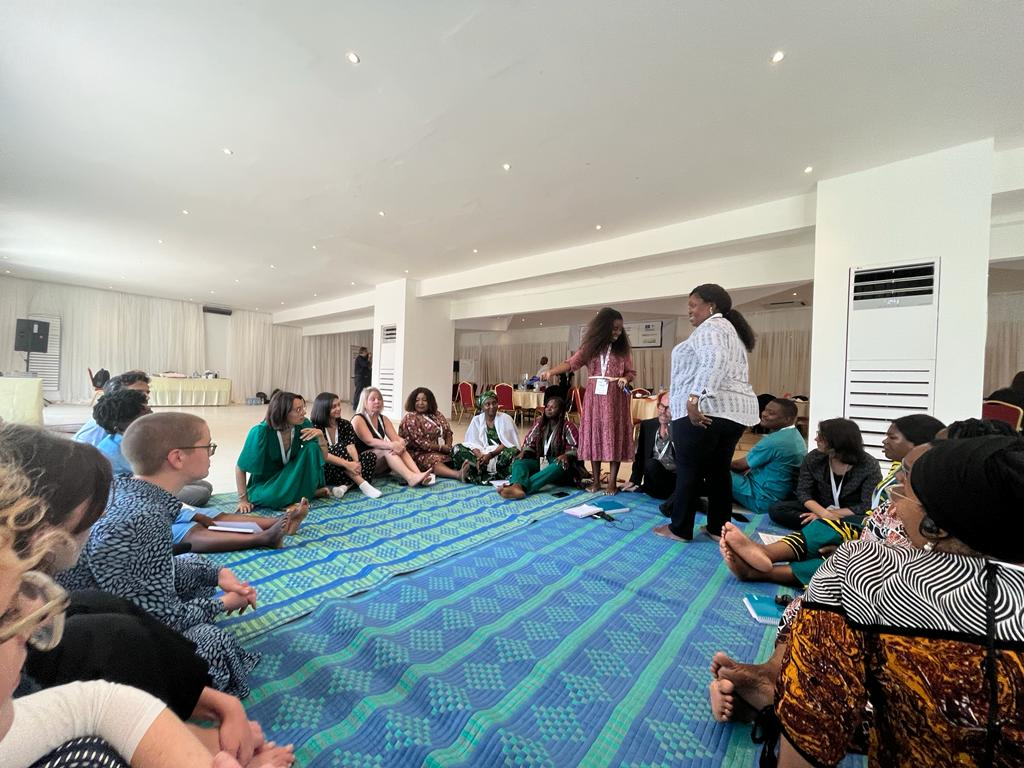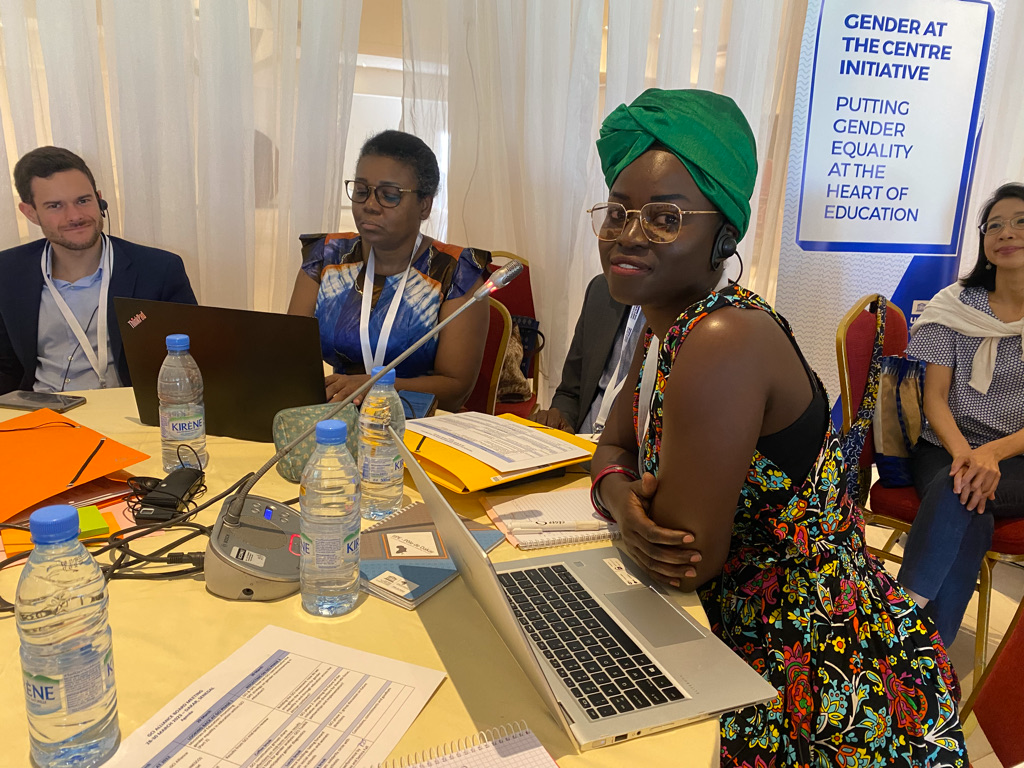Closing off the month of March, over 80 members of the Gender at the Center Initiative (GCI) Alliance, co-hosted by UNGEI and IIEP-UNESCO, attended the Annual GCI Alliance Board Meeting in Dakar, Senegal. Ministry of Education (MoE) officials, civil society organisations (CSOs), international donors, technical partners and young feminist leaders from the 8 GCI countries came prepared to share examples of the significant impact GCI has reached to date. Delegates from these 8 GCI countries, Burkina Faso, Chad, Mali, Mauritania, Mozambique, Niger, Nigeria and Sierra Leone, were also eager to ask, what’s next?
Over a packed three days, GCI Alliance members delivered detailed presentations about successes and challenges of the GCI within their remit, and gaps that the Initiative could serve to address in the future.
Many achievements were made possible at government level in 2022, thanks to the GCI. In Burkina Faso, the MoE conducted a Gender Participatory Diagnostic, analysing its strengths and weaknesses in gender mainstreaming in its organisation and work. In Mauritania, the MoE has started its Education Sector Analysis with a strong gender lens. In Niger, among countless successes, the GCI led to the first-ever designated budget allocation for gender-responsive education interventions within the MoE. Nigeria’s GCI-motivated programs led to the creation of gender desks in MoEs across 6 states and supported the domestication of the National Policy on Gender and Education through several trainings. With the support of GCI, Sierra Leone developed a gender-responsive education sector analysis and plan. The nation also hosted education leaders from all GCI countries and neighbouring Cameroon, the Gambia, Liberia, South Sudan, Tanzania and Uganda at the Gender-Transformative Leadership in Education Meeting in May 2022, which resulted in the Freetown Manifesto. The first of its kind, the declaration saw 14 nations commit to streamlining gender equality in their Education Sector Plans (ESPs) and develop concrete strategies to advance gender equality in and through education.

GCI feminist activists conducted solidarity circles on gender equality
Taking on GCI’s holistic approach to address both supply and demand barriers to gender equality, CSO partners Plan International, ANCEFA and FAWE shared examples of how they engaged communities to transform harmful gender norms. In Sierra Leone for example, a total of 148 community members, 27 student leaders, guidance counsellors and focal point teachers were trained in addressing SRGBV using reporting pathways. In Niger the CSO consortium mobilised various education and women’s rights actors to invest effectively in girls’ education and contribute to the reduction of child marriage. Niger also highlighted improved collaboration and coordination between MoE and civil society actors at the country level. In Mauritania the Coalition of Mauritanian Organisations for Education (COMEDUC), in collaboration with ANCEFA, organised a workshop on gender mainstreaming in public education strategies, attended by 60 COMEDUC members.
This meeting was crucial to make a first assessment of GCI phase 1 and reflect together on the future of GCI. The groundwork has been laid with stronger political commitment from GCI countries and a general consensus from all stakeholders to do more and better and translate this common will into impactful actions to advance gender equality in and through education at all levels, from centralized to decentralized.- GCI IIEP-UNESCO Lead, Fabricia Devignes
These accomplishments are only a few of the successes that GCI partners presented. In the true partnership spirit of GCI, participants also shared honest reflections on the challenges encountered in the first phase of the Initiative, and provided ideas on how to overcome them in a second phase. Throughout the meeting, delegates expressed a strong plea for more investments in addressing harmful gender norms, targeted funding of grassroots organizations and young feminist activists, increased in-country coordination, and support for gender capacity at decentralized levels— amongst others. This year’s meeting revealed the strong relationships that were built between MoEs, CSOs, young activists, donors and technical partners during the first phase— while calling for leveraging these relationships during Phase 2.
This meeting has shown how GCI has built both solid gender expertise and genuine commitment at all levels, from the Ministers of Education to the people in the communities. Let’s use those foundations to jointly continue to advance gender equality.- UNGEI GCI Lead, Eline Versluys

The GCI Alliance members shared insightful experiences and discussions
The meeting concluded with a pathway to designing Phase 2 based on data and experience contributed by each Alliance member. The pathway considered the successes and challenges of Phase 1, and a unified vision for gender equality throughout the GCI region. Subsequently, it contextualized interventions for each partner country. Participants concluded with a clear wish to continue to partner through the GCI Initiative and build a strong movement for gender-transformative education in Africa.



 English
English العربية
العربية Български
Български Hrvatski
Hrvatski Čeština
Čeština Dansk
Dansk Nederlands
Nederlands Suomi
Suomi Français
Français Deutsch
Deutsch Ελληνικά
Ελληνικά हिन्दी
हिन्दी Italiano
Italiano Română
Română Русский
Русский Español
Español Maltese
Maltese Zulu
Zulu አማርኛ
አማርኛ